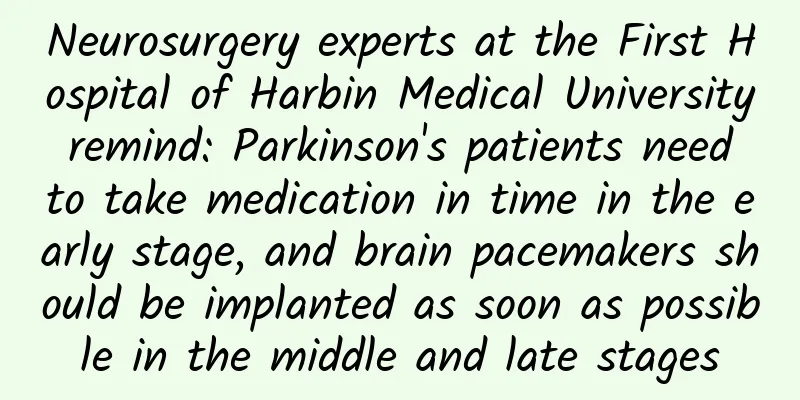What causes dizziness in pregnant women?

|
Dizziness in pregnant women is closely related to low blood pressure, especially in the early stages of pregnancy. Blood pressure will drop to a certain extent when the placenta is formed, but this is a normal phenomenon, so pregnant women do not need to be too nervous. 1. Pregnant women with low blood pressure and cerebral ischemia usually faint when they stand up suddenly or take the elevator. In the early and middle stages of pregnancy, due to the formation of the placenta, blood pressure drops to a certain extent, generally 1.33-2.67 kPa lower than usual, which is physiological. For pregnant women with pre-existing hypertension, the drop in blood pressure will be even greater. When blood pressure drops, blood flow to the brain will decrease, resulting in insufficient blood supply to the brain, causing cerebral ischemia and hypoxia, which in turn causes dizziness. 2. Pregnant women who eat too little and have low blood sugar sometimes experience dizziness, accompanied by palpitations, fatigue, and cold sweats, which usually occur when they eat less. During pregnancy, I ate less because of the pregnancy reaction - vomiting. Eating less will cause low blood sugar. Blood sugar is the raw material for muscle cells and brain cells to produce energy. When blood sugar is low, cell energy is reduced, leading to fatigue, dizziness, cold sweats, palpitations and other discomforts. 3. Improper body position compresses blood vessels. This type of pregnant woman usually has an attack when she is lying on her back or sitting on the sofa watching TV, but not when she is lying on her side or standing. This type of dizziness in pregnant women is a condition called supine syndrome. In the late stages of pregnancy, due to the enlarged uterus, when the woman lies on her back or sits lying down, the heavy uterus presses on the inferior vena cava behind it, preventing blood from returning to the heart from the lower body. The amount of blood returning to the heart is sharply reduced, and the cardiac output is reduced, resulting in reduced blood supply to the heart and brain, causing dizziness, chest tightness and other discomforts. 4. Anemia in pregnant women is also a common cause of dizziness in pregnant women. Pregnant women should usually consume iron-rich foods, such as animal blood, pork liver, lean meat, etc. Once anemia occurs, iron supplementation should be done urgently. Pregnant women may also experience symptoms such as dizziness and headaches. If the disease further develops into preeclampsia, it can cause convulsions and coma, endangering the lives of pregnant women and fetuses. This is the most serious complication during pregnancy and should be diagnosed and treated early. |
<<: What are the early symptoms of breast fibroids?
>>: What are the risks after a hysterectomy?
Recommend
What happens if the hymen ruptures?
The hymen is a layer of mucous membrane folds loc...
Is it possible to get pregnant if you have insufficient Qi and blood?
Nowadays, more and more women want to have a seco...
What should I do if my Huawei Honor phone prompts that the memory is insufficient? What is the Honor phone assistant called?
Nowadays, people have a growing demand for mobile...
What should I do if my calf muscles ache during confinement?
Many women will experience many adverse reactions...
The recent state of northerners: I haven’t been to the south, but I can feel the “humidity and heat” of the south…
□ Popular Science Times reporter Chen Jie and Hu ...
Complete Guide to Health Preservation of Meridian Acupoints in Female Body
In today's life, many people are easily troub...
Is it normal to have a small amount of bleeding after an abortion?
When a woman becomes pregnant unexpectedly and ch...
“Salt value” affects your appearance, these delicacies are “attacking” your skin →
Review expert: Wang Xuejiang, professor at Capita...
Temperature range during ovulation
The issue of temperature changes during ovulation...
Can I get my teeth fixed during pregnancy?
Repairing teeth is a treatment method that requir...
Research2Guidance: Android Market app downloads totaled 6 billion in mid-September 2011
On September 13, 2011, mobile market research com...
What causes waist pain in women
Many female friends often feel pain in their wais...
Is it normal to have delayed menstrual period every time?
For some female friends whose menstruation is not...
Will I suffer from insomnia in the first week or two of pregnancy?
Insomnia is a very serious condition for pregnant...
What should I do if my blood sugar is high during pregnancy?
We all know that women during pregnancy. People&#...

![[The hugs we missed together in those years - a silent confession of adolescent psychological trauma] The significance and impact of complex interpersonal trauma](/upload/images/67f1280403550.webp)







